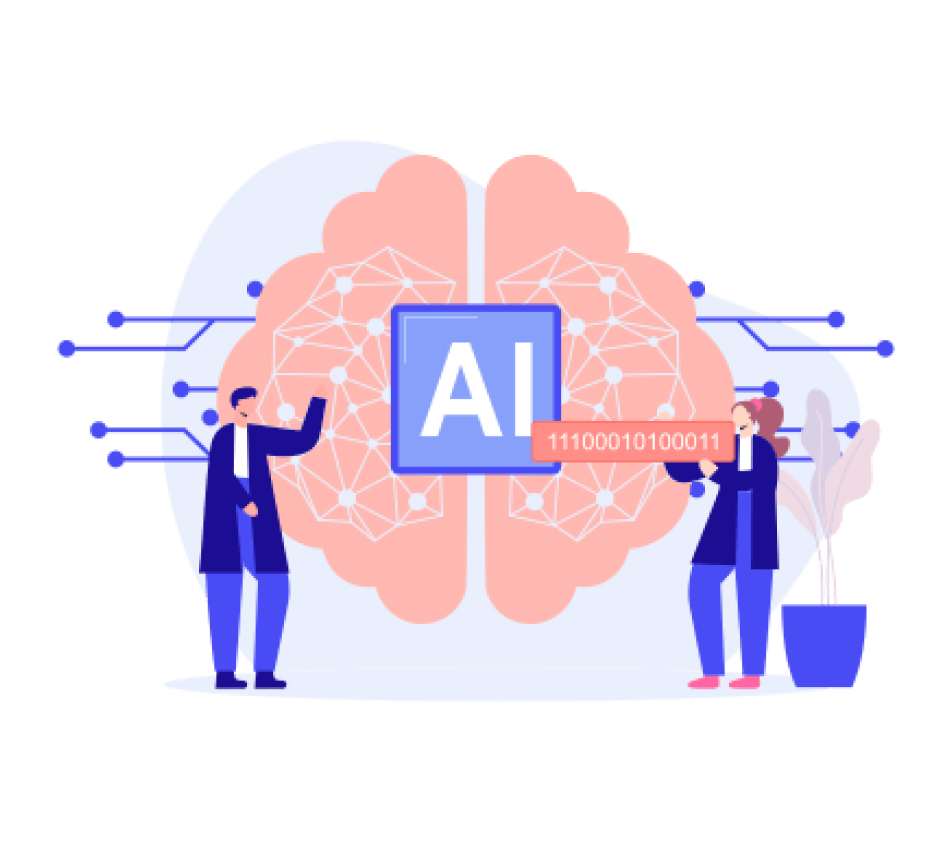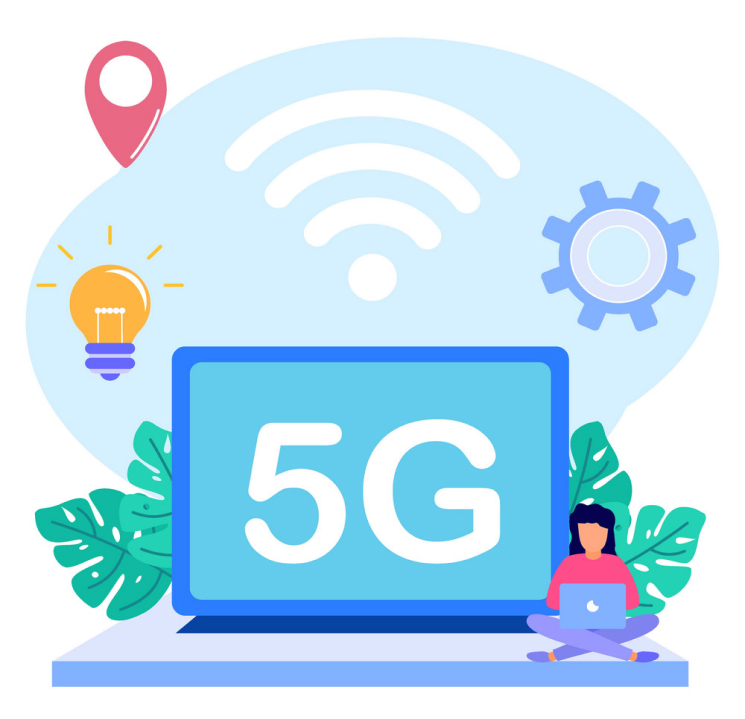Current Technology Trends
The technology space and services are dynamic and continually evolving. Several trends and changes are shaping the landscape of technology services. Here are some notable aspects of the changing scenario in the technology space:
Cloud Computing Dominance:
Cloud computing continues to dominate the technology space. Organizations are increasingly adopting cloud services for scalability, flexibility, and cost-effectiveness. Multi-cloud and hybrid cloud solutions are also gaining popularity for enhanced flexibility.
Edge Computing:
This adaptability is crucial in industries that undergo rapid advancements or face frequent changes.With the growth of IoT devices and the need for real-time processing, edge computing has become a prominent trend. Edge computing involves processing data closer to the source, reducing latency and improving efficiency in applications like IoT, AI, and augmented reality.
Shift to Subscription Models:
Many technology services are moving towards subscription-based models, providing users with access to software, platforms, and services on a recurring basis. This shift is seen in areas like Software as a Service (SaaS) and cloud services.
Artificial Intelligence (AI) and Machine Learning (ML):
AI and ML are pervasive in various applications, from predictive analytics and automation to natural language processing. These technologies are transforming industries by enabling data-driven decision-making and automation of complex tasks.
5G Technology:
The rollout of 5G networks is transforming connectivity and communication. This high-speed, low-latency technology is paving the way for innovations in areas such as the Internet of Things (IoT), autonomous vehicles, and augmented reality.
Cybersecurity Focus:
As cyber threats continue to evolve, there is an increased focus on cybersecurity. Technology services are incorporating robust cybersecurity measures to protect against data breaches, ransomware attacks, and other cyber threats.
Remote Work Technology:
The rise of remote work has led to increased demand for technology services that support virtual collaboration, communication, and secure remote access. Tools for video conferencing, project management, and digital collaboration are in high demand.
Digital Transformation Acceleration:
The pace of digital transformation has accelerated across industries. Organizations are leveraging technology services to modernize operations, improve customer experiences, and stay competitive in the digital economy.
Blockchain Applications:
Beyond cryptocurrencies, blockchain technology is finding applications in various sectors, including supply chain management, finance, healthcare, and legal services. Blockchain is valued for its transparency, security, and decentralized nature.
Quantum Computing Exploration:
While still in the early stages, there is increasing exploration and investment in quantum computing. Quantum computing has the potential to revolutionize computational power and solve complex problems that are currently intractable for classical computers.
Automation and Robotics:
Automation technologies, including robotic process automation (RPA) and physical robotics, are transforming industries by improving efficiency, reducing costs, and enhancing precision in tasks ranging from manufacturing to customer service.
Augmented and Virtual Reality (AR/VR):
AR and VR technologies are finding applications beyond gaming, particularly in training, healthcare, education, and remote collaboration. These technologies offer immersive and interactive experiences.
Sustainability and Green Technology:
There is a growing emphasis on sustainability in the technology space. Green technology initiatives focus on reducing environmental impact, energy efficiency, and responsible sourcing of materials.
Data Privacy and Ethical Considerations:
Concerns around data privacy and ethical use of technology are becoming increasingly important. Regulations such as GDPR and a growing awareness of the ethical implications of technology are shaping how organizations approach data and user privacy. The changing scenario in the technology space reflects a dynamic landscape where innovation, adaptability, and a focus on emerging trends are crucial for organizations to stay competitive and meet the evolving needs of users and industries.
From all the above we can draw an inference of how important role technology services play in an organisation.
Technology services are integral to the modern business landscape, driving innovation, providing specialised expertise, enhancing efficiency, and supporting organizations in their digital transformation journey. Our services contribute to the success, growth, and adaptability of businesses across various sectors.
Here are several reasons why you should consider enhancement or implementation of technological Solutions and services :
Innovation and Efficiency:
Technology services drive innovation by providing businesses with the tools and expertise to develop and implement cutting-edge solutions. These solutions enhance operational efficiency, automate processes, and enable new ways of doing business.
Digital Transformation:
Businesses are undergoing digital transformation to adapt to the demands of the modern world. Technology services are instrumental in helping organisations transition from traditional methods to digital solutions, improving agility and competitiveness.
Expertise and Specialization:
Technology services often involve specialised expertise in areas such as software development, cybersecurity, cloud computing, data analytics, and more. Organizations can leverage this expertise to address complex technological challenges.
Cost-Effective Solutions:
Technology services often offer cost-effective solutions compared to in-house development or management. Outsourcing technology needs can allow organizations to focus on their core competencies while benefiting from the expertise of external service providers.
Risk Management and Security:
Technology services often include robust cybersecurity measures, helping organizations manage and mitigate risks associated with data breaches, cyber threats, and compliance issues. Service providers stay updated on the latest security measures and industry best practices.
Global Reach and Connectivity:
Technology services enable businesses to connect with a global audience. Whether through digital marketing, e-commerce platforms, or communication tools, technology facilitates global reach and connectivity.
Customer Experience Improvement:
Technology services contribute to enhancing customer experiences. From developing user-friendly interfaces to implementing customer relationship management (CRM) systems, these services help businesses better understand and serve their customers.
Adoption of Cloud Computing:
Cloud computing services fall under the umbrella of technology services. Cloud solutions offer scalability, accessibility, and cost-efficiency, allowing businesses to store and access data, applications, and resources remotely
Support for Remote Work:
With the rise of remote work, technology services have become essential for providing the infrastructure and tools needed for employees to collaborate, communicate, and access company resources from various locations.
Data Analytics and Insights
Technology services enable organizations to harness the power of data through analytics. Analyzing data provides valuable insights that can inform decision-making, strategy development, and business optimization.
Compliance and Regulation:
Technology services can scale according to the needs of businesses. Whether it's scaling up infrastructure, expanding software capabilities, or adapting to changing requirements, technology services provide the flexibility to grow.
Continuous Improvement and Updates:
Technology services often involve ongoing maintenance, updates, and support. This ensures that organizations are using the latest technologies, benefiting from improvements, and staying ahead of potential security vulnerabilities.













